“Sorghum Has Its Definite Place in the Beauce Region”

As soon as he created his company, in 2016, Eudes Coutté set out to turn his 110-hectare farm into an economically-stable enterprise. The need for crop diversification became self-evident relatively fast. He therefore included sorghum among its crops – along with its multiple markets. Eudes Coutté takes care of the processing and marketing of his products, himself.
How do you turn a family farm into a steady economic unit, both in terms of profit and production? Eudes Coutté had asked himself this question well before 2016, when he took over the 110 hectares that his grandparents and great-grandparents had farmed before him. “The traditional rotation that is practiced in Beauce (wheat/barley/rapeseed – with a bit of pea, sometimes) made no sense any more: neither economically, nor in terms of the environment. High input use, yields that stagnated, market prices that depended on the international situation… None of it worked for me!” Within that context, it soon became clear to Eudes Coutté that he needed to diversify his crops. However, there was no question of imitating what his neighbours were doing.
Sorghum? “All You Need to Do Is Watch It Grow”
“In 2019, I started adding saffron, oats, chickpea, lentils, yellow pea – and sorghum, to my crops”, he continues. “I was the only one at the time who grew sorghum in the Beauce. This crop has convinced me for several reasons. It uses few inputs, does not need much water, and it helps to preserve moisture in the field, in summer – which favours biodiversity during the hottest period of the year. Without mentioning that a wheat crop that follows sorghum will have higher yields! The only condition is that the soil needs to be warm enough (at least 12°C at planting). Once you’ve got this covered, all you need is to watch it grow. Sorghum is an easy crop to produce.”
Sorghum Flour, Grains, Liquor… and Soon Enough, Beer
Eudes Coutté wanted to go further and process his sorghum grain harvests himself. “This plant has unquestionable nutritional assets” he says. “It is gluten-free, it is rich in iron, nutrients, and amino acids. I have been working with a couple of company cafeterias and am currently negotiating with several canteens. A neighbour of mine, too, who is a baker has created a sorghum-based type of bread.”
Eudes Coutté also has a mill on his farm. Thus he produces his own flour and also sells sorghum grains, liquor, and dishes based on sorghum, carrots, and chicken. He also hopes to soon realize yet another project: sorghum beer. His products are sold through local retailers or directly from his farm, where he also has an educational farm, as well as a museum dedicated to memory and to the heroes who died in the southern Essone region. “Between 2021 and 2023, I have received almost 10 000 visitors! Just so many potential consumers of sorghum”, he concludes.
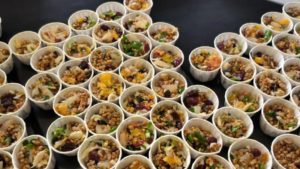
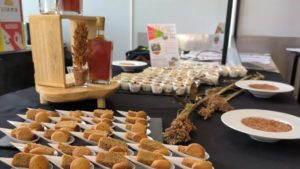
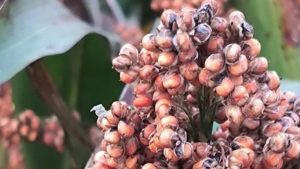
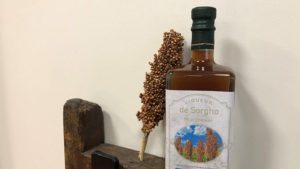

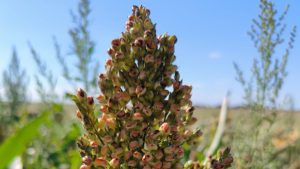
Continue ?
European Sorghum Congress

Sorghum gives you the floor













